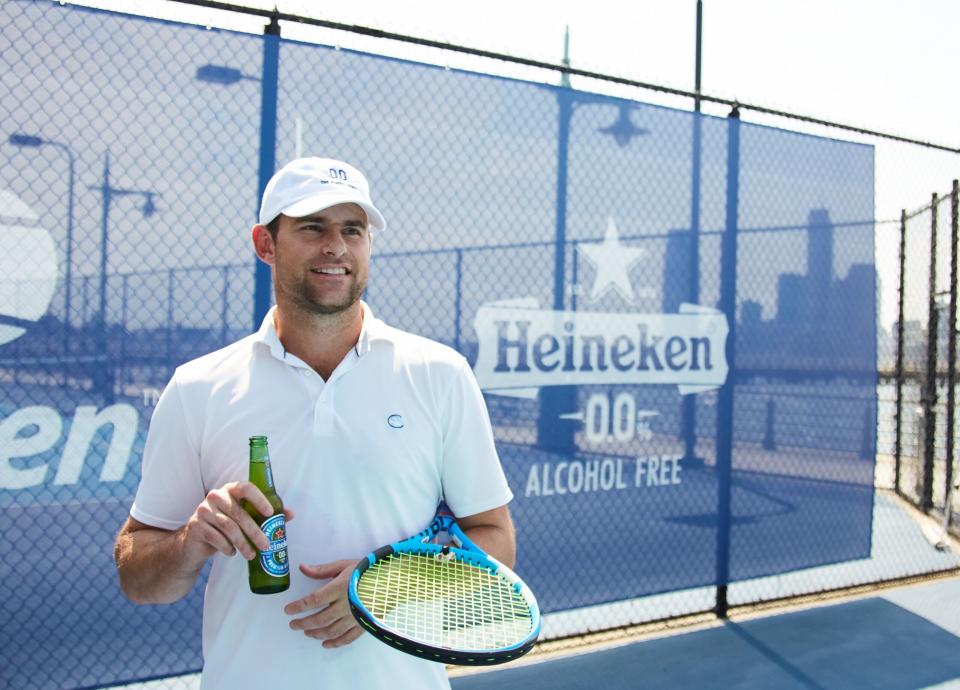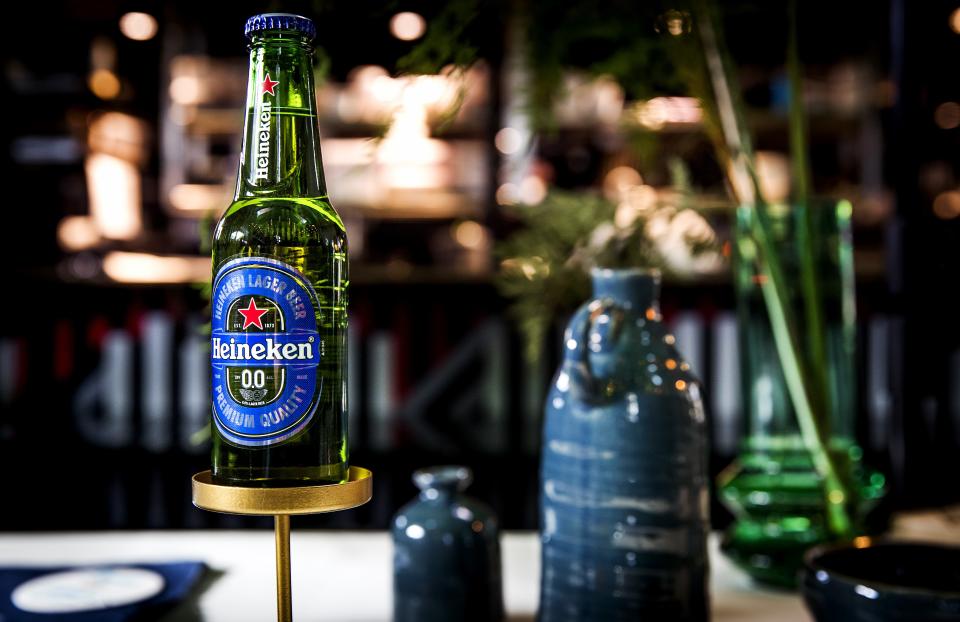Heineken asks: 'Would you want to have a beer with Andy Roddick?'
You might see some irony in the fact that the exclusive beer sponsor of the most iconic American tennis event is a Dutch import. But Heineken is in its 28th year of sponsoring the U.S. Open—it’s the beer brand’s longest-running sponsorship.
And Heineken USA CMO Jonnie Cahill says the U.S. Open is still worth the cost for Heineken (reportedly more than $4 million per year), even at a time when most brands increasingly question the value of sports sponsorships and athlete endorsements.
“The old days of hiring the big athlete or taking the big sponsorship and using it purely as a branding opportunity, that is still part of the mix, but it’s not fundamentally why you do this,” Cahill told Yahoo Finance on Saturday just before Serena Williams and Bianca Andreescu took the court for the 2019 women’s singles final. “We already have instant spontaneous awareness with the Heineken brand, so we don’t need the U.S. Open for people to see or hear the word Heineken. The question for my team is, What do you do with it?”

It’s a fair point. Anyone who drinks beer has heard of Heineken—so why sponsor a tennis tournament at all?
Heineken usually uses the opportunity to promote a new or newish product. This year, its focus at the U.S. Open was Heineken 0.0, a new non-alcoholic beer that it launched in January.
Heineken thinks now is the time for zero-alcohol beer
Beverage industry tracker IWSR reported that overall beer sales volume in the U.S. fell 1.5% in 2018, a steeper slide than the 1.1% decline in 2017. “The market has been under pressure, especially with the younger demographic,” says Cahill. “You see younger people looking for different solutions, like White Claw, and drinking less. What we have to do is not worry about that. We have to respond.”
The response is Heineken 0.0, which Cahill says is “flying,” because, “There are moments in the day when you’d love a beer, but life is going on. You have to pick up the kids at soccer or you have a big meeting tomorrow. It’s not Nashville on a Friday night at a bachelorette party, that’s not when you want Heineken 0.0. But it might be on a Monday night when you’re watching football at 11:00.”
Indeed, Euromonitor projects that low-alcohol beer sales will grow 9% globally this year, outpacing the growth of the larger beer market.
To market its zero-alcohol beer this year, Heineken tapped two tennis stars that U.S. Open fans haven’t seen compete in seven years: Andy Roddick (who retired in 2012) and Lindsay Davenport (who last played a U.S. Open in 2008).

Those names may look like they come from left-field, but it’s notoriously difficult to get pro athletes to do marketing when they’re in season, so it was unlikely Heineken could get current pros.
Cahill says Heineken’s approach to its work with athletes is to work around one simple question: “Would you like to have a beer with these people?”
Using old players to push a new product
Davenport and Roddick, even years removed from their playing careers, are still recognizable faces (though perhaps not to people under 25). Roddick, in particular, has managed to keep earning from endorsements, and was also doing marketing at this year’s tournament for Grey Goose vodka and IHG Hotels.
“Andy has credentials in tennis, but he’s also just a great guy,” says Cahill. “Everybody on the sponsor side, we’ve all had moments where we’ve had to work with difficult people, or people who don’t really want to do it, or people who are just doing it for the transaction. And that doesn’t work for us. So we place a lot of stock in the question, Would you want to have a beer with Andy? 99% of the world would say, Totally.”
The entire dynamic of how athletes partner with brands has shifted in recent years, away from the star taking a check to appear in an ad (though you still see some of that) and toward stars partnering with new brands and startups early, often for an equity stake in the business, and having deeper holistic involvement. Think of LeBron James and Blaze Pizza, or Shaquille O’Neal with Ring (which Amazon bought for $1 billion) and Papa John’s (he bought nine franchises and joined the board).
Heineken’s event-specific deals with Roddick and Davenport look more like the old way, but with a live experience as the focus instead of advertising. Heineken activated the sponsorship by setting up an opportunity in Manhattan, the week before the start of the U.S. Open, for fans to try to return a serve against Roddick or Davenport in exchange for tickets.
Measuring the ROI of a sports endorsement is an inexact science, but last year, research firm Hookit found that one of the social posts that got the most engagement was a promoted U.S. Open Facebook post about Heineken, which brought the beer brand $66,000 of earned media value.
Heineken is a sliver of the the size of rival AB InBev ($28 billion in 2018 global sales vs. $55 billion) with a sliver of the marketing budget. Cahill says that’s an advantage with athletes and sports properties. “All of those people understand, you can probably always get more money from another partner. We may not be your biggest partner, but we will be your best. Because we’re a smaller business than some of our competitors, these relationships matter to us.”
—
Daniel Roberts is the sports business writer at Yahoo Finance. Follow him on Twitter at @readDanwrite.
Read more:
The athlete endorsement model is broken
Uniqlo is spending big money on Roger Federer
Shaq is set to be the new face of Papa John’s
Shaq does one unique thing that sets him apart from other athlete endorsers
Jay Z defends his NFL deal: ‘I think we have moved past kneeling’


